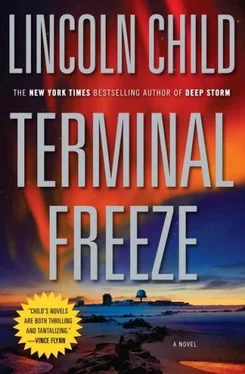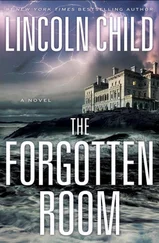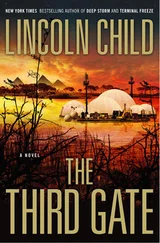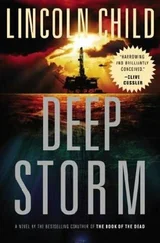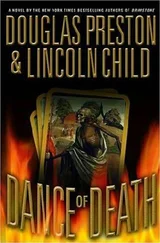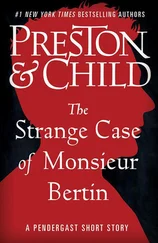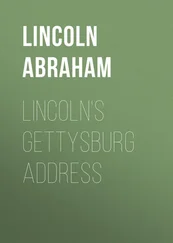“Sabotage?”
Conti nodded. “As valuable as that cat is, the logistics of removing it from the base-spiriting it away-simply don’t work.” He ticked the points off on his fingers. “The thieves-and there would have to be at least two, the asset is simply too heavy for one person to handle-would need transportation. That would be impossible to conceal from us. And if anyone were to leave prematurely, we’d know.”
“What about Carradine, the trucker? He not only has the transportation; he’s one of the newest arrivals.”
“His cab’s been thoroughly searched, and his movements are accounted for. As I was saying, stealing the cat would be prohibitively difficult. But if all somebody wanted was for the documentary to stop, for our show to go away…” He shrugged. “Then it would just be a matter of dropping the carcass down some crevasse. Nobody would be the wiser.”
“Who would want to do such a thing?” Marshall asked.
Conti looked at him. “You would.”
Marshall looked back in surprise. “Me?”
“Well-you scientists. It might be you, in particular. But on careful consideration I think Dr. Sully is the more obvious choice. He seems to be quite put out that I didn’t make him a star of Raising the Tiger. ”
Marshall shook his head. “That’s crazy. The documentary was set to go live yesterday-you would have been gone today. Why bother with sabotage?”
“It’s true: I would have been gone today. But postproduction on a successful shoot would take several days longer. Not to mention dismantling the sets, removing the equipment. When I gave Sully an estimated timeline, he didn’t seem especially pleased.” Conti looked at him searchingly. The smile was now gone. “Sully seems like the impulsive type. You don’t. That’s why I’ve come to you. Despite our little fracas the other day, I think you’re a reasonable man. Perhaps more than your colleagues, you realize what’s at stake. So: Where the hell is that cat? ”
Marshall returned the stare. Despite the director’s carefully composed expression, it was obvious that Conti was doing a desperate dance, searching for a way, any way, to salvage the situation.
“What about Logan?” Marshall asked, recalling the previous evening’s conversation in the RASP room. “He came here out of nowhere. Nobody knows what he wants. I’m told he’s a Yale professor-professor of history. Doesn’t that strike you as strange-and very suspicious?”
“It is strange. So strange, in fact, that I have to discount him as a suspect. He’s too obvious. Besides, I already told you: my money’s on sabotage, not theft. And Dr. Logan has no reason to sabotage my documentary. So: Where’s the cat? Sully would have told you, I think. Is it retrievable?”
“Sully didn’t tell me anything. You’re barking up the wrong tree. You should be searching among your own team.”
Conti regarded him carefully, his expression slowly dissolving into something very much like regret. “That’s Wolff’s job.” He sighed. “Listen. I’ve given it a lot of thought, and I can do this one of two ways. If we find that cat, I can make the film I originally intended. With my skills, I can even turn this delay into a benefit: make things more exciting, increase the audience. Everybody wins. Or -I can make this a crime story.”
He jerked his thumb back at the screen. “I’ve always wanted to make a noir picture. Now I can-except I have a true story to tell. A huge story, documented as it plays out in real time: the sabotage, the investigation, the ultimate triumph of justice. Such a story would never die, Dr. Marshall. Imagine the publicity-positive or negative-for those portrayed. All I need do is cast it. Find the hero… and the villain.”
On the huge screen, Victor Mature was crossing a busy street, the urban skyline rising behind him. “Look at him,” Conti said. “An average Joe, caught up in something bigger than himself. Remind you of anybody?”
Marshall did not reply.
Conti shifted again. “So what’s it going to be, Dr. Marshall: do the right thing, side with the cops, squeal on the bad guy? Or do something else…something much more stupid?”
As Mature left the frame, the camera panned in on another figure, hiding in a dark alley: pale, lean, all in black with a white tie, eyes strangely empty. Tommy Udo. Emerging from concealment, he looked carefully around, then disappeared into a doorway.
“I always loved Richard Widmark in this role,” Conti said. “He plays such a great psycho. His mannerisms, his nervous hyena laugh-pure genius.”
Now the killer was creeping stealthily up a narrow staircase.
“I was hoping to cast you as Mature,” Conti said. “But now I’m not so sure. You’re beginning to look a little more like Widmark.”
The killer had entered an apartment and was confronting a terrified old lady in a wheelchair.
“That’s Nick Bianco’s mother,” Conti explained.
The camera looked on, with monochromatic dispassion, as the woman was interrogated, shaken about. Widmark was smiling now, a strange lopsided smile, as he manhandled the grips of the wheelchair, steered it out of the shabby apartment and onto the landing.
“Watch this,” Conti said. “An imperishable moment of cinema.”
Widmark-still smiling, a pale, grinning death’s-head in a black suit-positioned the wheelchair at the top of the stairs. There was the briefest of pauses. Then, with a sudden violent thrust, he sent it and its struggling occupant tumbling down on a one-way ride to perdition.
Conti froze the picture on Widmark’s contorted face. “The network is calling me in six hours. I’ll give you four to make your choice.”
Silently, Marshall rose.
“And remember, Dr. Marshall-one way or the other, I’ll be casting you.”
In days past, the officers’ mess had been full of noise and bustle, radiating the kind of irrepressible glee more common to a frat party than a remote army base. This morning it felt more like a morgue. People sat in twos and threes, picking listlessly at their breakfasts, barely talking. Furtive, suspicious glances were exchanged, as if the guilty party could be anyone. Standing in the doorway, Marshall realized this was, in fact, true: anybody in the mess might be the culprit.
His eye settled on a far table, where a man sat alone, reading a book. He was light-haired and thin, with a carefully trimmed beard. Logan, the history professor.
Marshall helped himself to a slice of whole wheat bread and a cup of tea, and then-on impulse-took a seat across from Logan. “Good morning,” he said.
Logan put down the book- Illuminations, by Walter Benjamin-and glanced across the table. “That remains to be seen.”
“All too true.” Marshall peeled open a small tub of marmalade and spread the contents over his bread.
“I guess it’s worse for them than for us.” Logan nodded toward the next table, where the two photographers, Fortnum and Toussaint, sat woodenly pushing scrambled eggs around their plates with shell-shocked expressions. Much of the documentary crew had been put to work searching the base and its surroundings for the missing cat.
“That’s right. Nobody’s made off with my livelihood.” Marshall was careful to keep his tone light. “You?”
Logan stirred his coffee. “Unaffected by the events.”
“I’m relieved to hear it. Professor, right? Of medieval history?”
The stirring slowed. “That’s right.”
“I’m fascinated by the subject. In fact, I’ve been reading a history of the Counter-Reformation.” This was only half true- Marshall ’s nightly reading was, in fact, a book on the Counter-Reformation: but it was with the desperate hope that the incredibly dry exposition would help him find sleep.
Читать дальше
